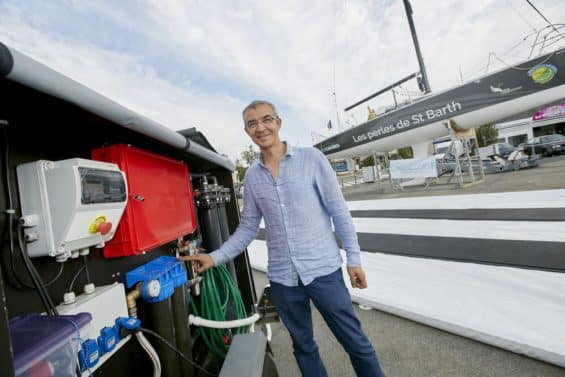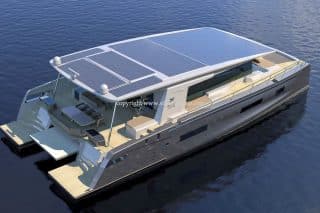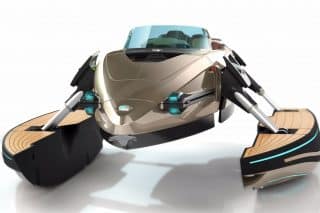French firm CarenEcolo, founded in 2015, was nominated for a Marina and boatyard equipment DAME Award at METS 2017. Its economical mobile hull washing system removes pollutants from wash water so that it can be put back into the natural environment. We spoke with system creator Gaëtan Fouquet.
NauticExpo e-mag: How does your system work?
Gaëtan Fouquet: The system is packed in a trailer. It consists of a water-recovery tarp and a filter tank. The tarp is laid on the ground and the edges inflated to create a shallow basin. It takes advantage of the natural slope of the ground to collect runoff water—3% suffices. That’s typical of most parking lots and areas around ports.
Water treatment begins as soon as the hull washing starts. There are seven or eight filtration stages. The first recovers coarse particles like paint flakes, shellfish, etc. This step also removes hydrocarbons.
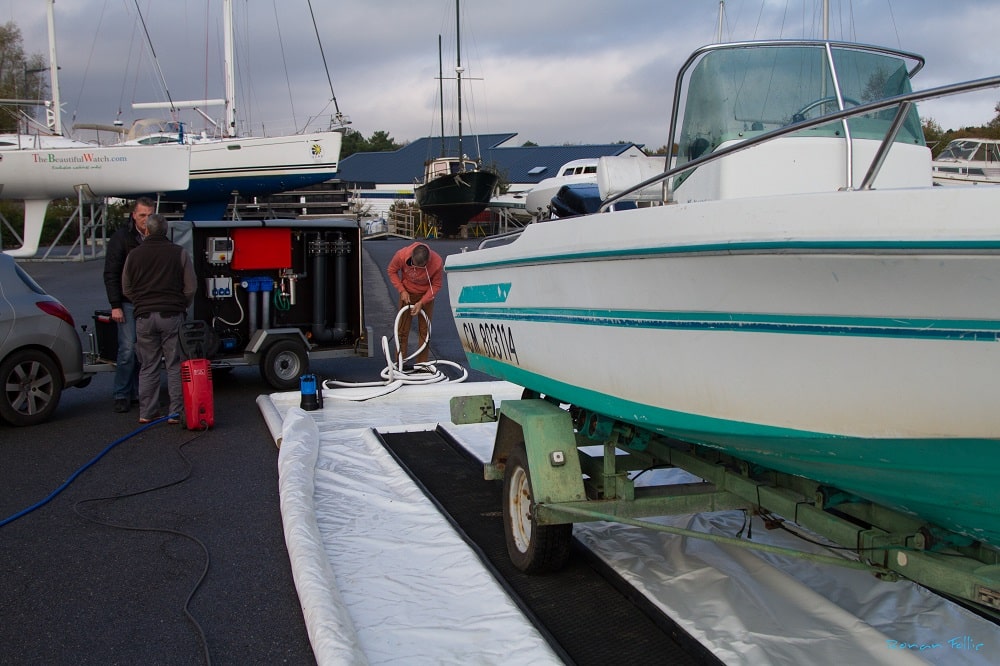
The tarp is laid on the ground and the edges inflated to create a shallow basin (Courtesy of CarenEcolo).
Subsequent steps finish with a 0.02 micron hyper-filtration. The result is clean, completely pollutant-free water. You can dump it back into the port, water flowers or even drink it, though the machine was not originally designed for that.
NE e-mag: What’s the target market?
Gaëtan Fouquet: Municipal, regional or other government entities, recreational boating groups and small boatyards.
For boatyards looking for something a little more durable, we’ve developed what we call a semi-permanent version. It’s left in place to recover washdown water. It can be installed on an existing open space without major construction work.
NE e-mag: Is environmental protection the main goal?
Gaëtan Fouquet: Yes. We saw that permanent systems were very expensive, hindering the development of clean hull maintenance. A mobile system eliminates the need for foundation work, greatly reducing setup costs. We’re four to five times less expensive than competitors offering permanent installations.
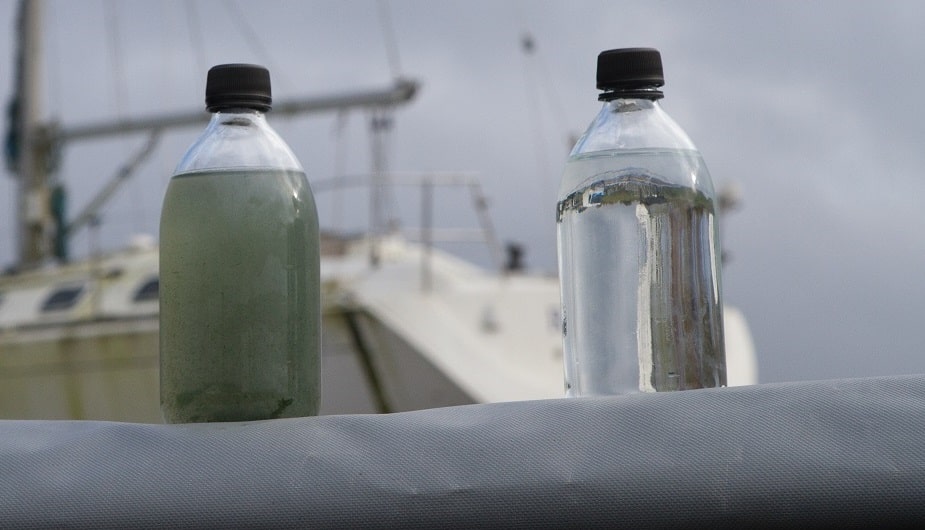
The result is clean, completely pollutant-free water. You can even drink it (Courtesy of CarenEcolo).
The main advantage of the system is that costs can be shared. For example, two towns can buy a single system, setting it up in one port for a week and in the other the following week. Installation takes only about 10 minutes. It can be brought right to the slipway, making it very practical.
NE e-mag: What are the worst pollutants resulting from uncontrolled hull cleaning?
Gaëtan Fouquet: Everything in antifouling paint—TBT, biocides, heavy metals like lead, mercury, copper, and tin. High-pressure hull washing concentrates these ingredients in the runoff water, creating pollution.
In addition, traditional drydock areas don’t have a filtering system as good as ours. Some make things dirtier rather than cleaner because the filters are so saturated that they add pollutants to the water instead of removing them. There aren’t so many that meet established standards.
NE e-mag: How often do you change filters?
Gaëtan Fouquet: We offer a machine maintenance contract that enables us to recover dirty filters and have them treated. We have two kinds of machines. For the mobile version, filters must be changed after 50 uses. For the ones we’ve just developed, it’s about 150 uses. It’s a beefed up version of the same system. We modified the filtration parameters, the amount of filtration agent and the absorption rate. It’s a system designed for boatyards.
Our system has been approved by the French Water Agency and is entirely ecological. We’ve gone a step beyond by designing the machine so that the different components can be reprocessed at the end of the system’s working life. The rubber mats can be treated and reused in playgrounds, and the flexible white retention tarps can be recycled into fabric or handbags.

